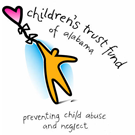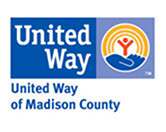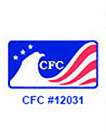The Learning Continues with Deep Practice
By: Linda Cordisco Steele, M.Ed., LPC
Director of Forensic Interview Training and Services
 I love conducting forensic interviews with child witnesses and reading and thinking about this complex task. As interviewers, we are constantly working to develop and hone our skills. To that end, I want to introduce a new concept I learned from Daniel Coyle’s book. The book is called The Talent Code: Greatness Isn’t Born. It’s Grown. Here’s How, and is my all-time favorite new book of 2023. Coyle challenges our belief that talent originates with a genetic gift and that excellent performers exhibit traits that the rest of us can only dream about. He proposes that talent begins with an individual encounter that sparks an interest in developing a specialized skill, hopefully leading to alignment with a high-performing individual or group. Coyle labels this spark as “ignition.” Ignition is only the beginning of the growth journey, as progress in developing a complex skill set requires conscious and intentional repetition of component skills combined with reflection, feedback, and coaching.
I love conducting forensic interviews with child witnesses and reading and thinking about this complex task. As interviewers, we are constantly working to develop and hone our skills. To that end, I want to introduce a new concept I learned from Daniel Coyle’s book. The book is called The Talent Code: Greatness Isn’t Born. It’s Grown. Here’s How, and is my all-time favorite new book of 2023. Coyle challenges our belief that talent originates with a genetic gift and that excellent performers exhibit traits that the rest of us can only dream about. He proposes that talent begins with an individual encounter that sparks an interest in developing a specialized skill, hopefully leading to alignment with a high-performing individual or group. Coyle labels this spark as “ignition.” Ignition is only the beginning of the growth journey, as progress in developing a complex skill set requires conscious and intentional repetition of component skills combined with reflection, feedback, and coaching.
Rather than seeking to avoid mistakes, Coyle recommends that we learn to embrace our mistakes as opportunities for growing awareness to be followed by new learning and practice. The growth process is supported by a coach's observation, instruction, and feedback (which could include a supervisor, mentor, or more experienced peer). Coyle goes on to say, “Deep practice is built on a paradox: struggling in certain targeted ways – operating at the edges of your ability, where you make mistakes – makes you smarter. Or, to put it a slightly different way, experiences where you’re forced to slow down, make errors, and correct them – as you would if you were walking up an ice-covered hill, slipping and stumbling as you go – end up making you swift & graceful without your realizing it.” Coyle emphasizes that deep practice only occurs when we go beyond mere repetition and instead engage in opportunities for focused practice with critique. Previously I introduced two essential core competency training courses, Beyond the Basics and Critical Thinking Throughout the Forensic Interview. These trainings are intended to stretch newer forensic interviewers’ skill in implementing questioning approaches, methods of providing social support, and decision-making throughout the forensic interview. Three additional training courses are available to provide further guidance in tailoring skills to meet the needs of the child being interviewed and case-specific complications.
Getting the Best Information from a Narrative Child
As forensic interviewers, we can become overly focused on challenges in interviewing reluctant child witnesses. Consequently, we may underestimate children’s ability to provide detailed descriptions and clarification in their own words. It is easy to fall into a mindset that child witnesses need more specific and direct questions and develop a habit of using similar questioning styles with both forthcoming narrative children and less capable or willing children. This training provides an opportunity for forensic interviewers to hone their skills in identifying this subset of children, as well as strengthen the interviewer’s skill, flexibility, and comfort in the use of both open and focused recall questions, which are highly effective when interviewing children motivated to provide information.
Strategies for Interviewing a Reluctant Child Witness
Reluctant children present such a challenge as reasons for reluctance are complex, diverse, and individual. Other factors complicate matters, as the degree of reluctance runs along a continuum from mildly anxious and hesitant to an absolute commitment to withholding information, and reluctance can appear at different junctures during the interview. Unfortunately, no step-by-step set of strategies for reluctance can be applied. Forensic interviewers may feel a lot of pressure and responsibility, especially when there is concern that investigators will not be able to protect a vulnerable child without adequate information from the child.
This training will allow interviewers to engage in a deeper and broader exploration of the many factors that may play a role and allow time for considering a toolbox of possible strategies to address different issues and concerns. A process for applying critical thinking and decision-making throughout the interview will help interviewers feel more confident and prepared to interview reluctant children.
More Than One Interview: When, Why, and How
Forensic interview specialists, law enforcement, and child protection investigators have long recognized the limitations of the “one and done” approach to interviewing a subset of children. Reasons can be child-specific (shyness, communication challenges, fatigue, cultural influence, lack of trust) or case-related (multiple forms of victimization, many episodes extending over a long time, etc.) Current research provides practitioners with support and caution for using a multiple interview model. While the research and literature give information and some direction about decision-making and implementation of a multi-session forensic interview process, a recommended structure is not provided. Much discretion is left to the forensic interviewer and investigative partners regarding the number of sessions and process for each session. Forensic interviewers must be able to explain and defend the process in criminal and child protection proceedings. This training provides an opportunity to review the research and provides guidance for a decision-making process and adaptations of interview strategies in “stretched-out forensic interviews.” Issues of adequate resources, time constraints, and educating team partners, prosecutors, and perspective jurors will be discussed.
What Forensic Interviewers are saying about Developmental Pathways:
More Than One Interview: When, Why, and How
"I learned so much from Linda Steele. I feel that I got a lot of new information on how to do extended interviews. I learned ways to ask questions in different ways that I had not thought of. Networking with different interviewers was great also."
More Than One Interview: When, Why, and How
"I was able to learn the current recommendations for additional interviews and the supporting research. I am eager to bring this knowledge back to my MDT and apply it to my work with children."
Getting the Best Information from a Narrative Child Witness
"Andra's experience and willingness to share was invaluable."










